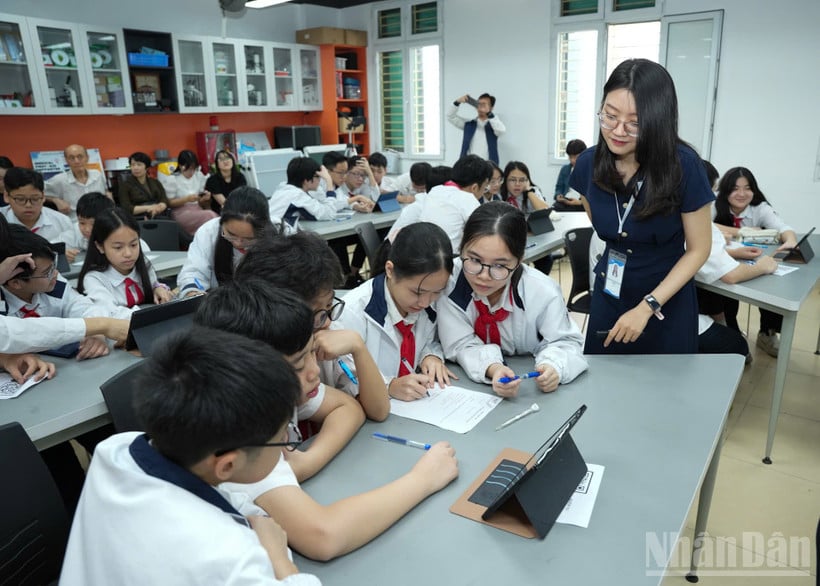
The explosion of artificial intelligence in schools and the challenges that need to be addressed.
In recent years, the rate of adoption of artificial intelligence among students has increased dramatically. Data presented at the "Developing Artificial Intelligence Capabilities for Learners" workshop at the University of Social Sciences and Humanities on October 28th showed that, based on a survey of approximately 500 students from various courses at universities in Hanoi, 98.9% of respondents stated they use AI in their studies or for entertainment.
Statistics also show that approximately 15% of schools in major Vietnamese cities have applied AI in teaching, with Hanoi reaching about 25% and Ho Chi Minh City about 30%. The subjects most supported by AI are: Mathematics, English, Science, and Computer Science. Notably, not only university students but also many middle school and even elementary school students have proactively used AI as an effective learning tool.
Professor Le Anh Vinh, Director of the Vietnam Institute of Educational Sciences, stated that a survey conducted to support the development of an Artificial Intelligence (AI) competency framework for learners was carried out with over 11,000 junior high school students at the end of 2023. Among the students who participated, 87% had some knowledge of Artificial Intelligence (AI) (such as accessing, trying it out in play, learning, etc.). They also assessed the use of AI as very effective.
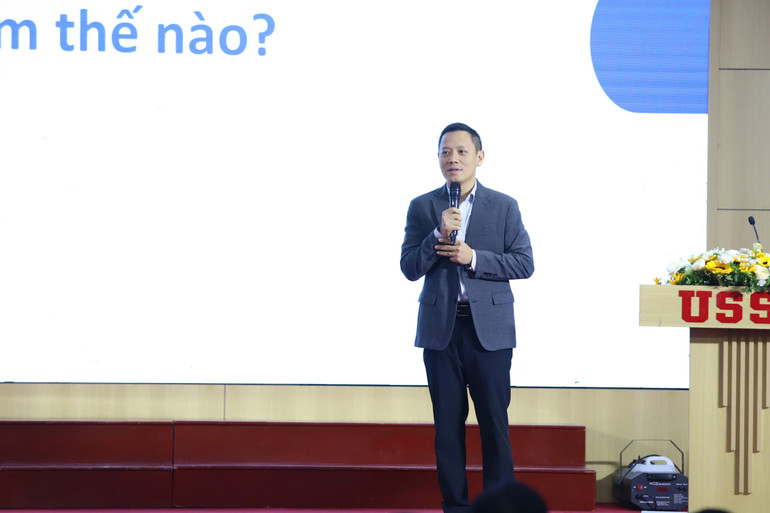
As for teachers, a survey of nearly 35,000 middle and high school teachers conducted at the end of 2024 revealed that 76% of teachers had used Artificial Intelligence (AI) in teaching, and they rated its effectiveness quite highly.
Professor Le Anh Vinh also provided information, stating that students and teachers have pointed out difficulties and limitations when using artificial intelligence (AI). Accordingly, students identified three main difficulties. Firstly, a lack of knowledge; secondly, a lack of technological equipment in schools; and thirdly, and most significantly, a lack of guidance from teachers. Most students learn and approach the subject independently, with relatively low teacher involvement and guidance.
Regarding teachers, most reported that they learned and accessed artificial intelligence technology through self-study. Some may have participated in training courses organized by the Ministry or Department of Education and Training, and about 30% received training in courses organized by the school itself or in collaboration with external technology partners.
Teachers believe the biggest challenge in integrating AI into teaching remains the lack of training and support, in addition to concerns about privacy, data security, accuracy, and reliability of AI tools.
"Therefore, we see that even without systematically and comprehensively integrating AI education into secondary schools, the field remains vibrant, and teachers and students can still utilize it for learning. However, without providing sufficient information and appropriate educational methods, the use of artificial intelligence (AI) in schools will not achieve the desired results," emphasized Professor Le Anh Vinh.
Sharing her thoughts on the application of artificial intelligence in high schools, Nguyen Thi Nhiep, Principal of Chu Van An Specialized High School (Hanoi), stated that artificial intelligence is now a trend with many positive aspects, therefore, it is impossible to prohibit students from using it. “The important thing is to guide students on how to utilize it, and for them to do that, the most important person, the most crucial filter, is the teaching staff,” said Dr. Nguyen Thi Nhiep.
At Chu Van An High School for the Gifted, from the 2024-2025 school year to the present, at least two training sessions have been organized for teachers on leveraging AI applications in teaching activities. “When teachers have a solid foundation, they will be the ones to teach students, guiding them on how to utilize AI applications transparently, effectively, and especially ethically,” shared Ms. Nguyen Thi Nhiep.
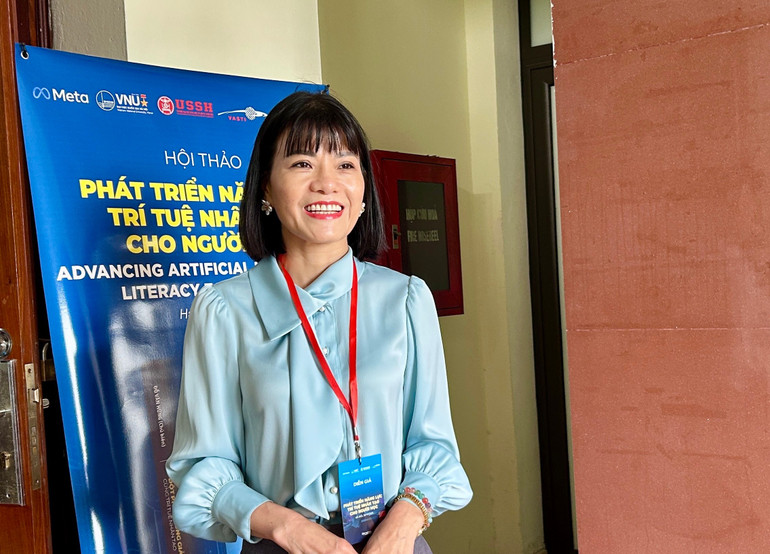
However, the principal of Hanoi's leading school also expressed concern about how to prevent students from abusing Artificial Intelligence (AI) in a way that negatively impacts their critical thinking and creativity during their studies.
“To prevent the negative aspects of artificial intelligence in students, based on my observations and practical experience, I believe teachers still play a crucial role. To achieve this, we teachers must receive thorough training, understand the nature of AI, and its ethics… Based on what we learn and are trained in, we can then continue to educate students on these matters,” Ms. Nguyen Thi Nhiep expressed, adding that it is necessary to define AI development competency goals for each group, from teachers and students to each school.
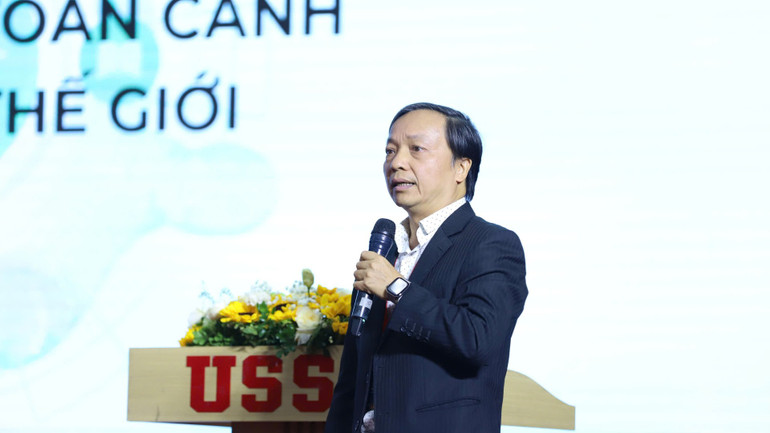
According to Dr. Le Linh Luong, Deputy Director of the Institute of Blockchain Technology and Artificial Intelligence, with AI becoming so widespread, the question facing educators and technologists is not "should we use AI or not?" but rather "are we training AI users, or AI masters?"
Artificial intelligence is no longer just a technology; it has evolved into something else. The skills that current and future workers need to be equipped with. Advanced developed countries around the world have all implemented strong educational policies to support the development of artificial intelligence capabilities.
"In reality, we have applied AI very strongly, but there are still difficulties in education. We need to promote the application of AI and increase the capacity to use AI. We cannot stop at just understanding what AI is; we need to integrate AI into the teaching and learning process in a substantive, standardized way, and with an assessment of the learning outcomes," Dr. Le Linh Luong stated.
Introduce artificial intelligence into schools as soon as possible.
The recent breakthrough development of artificial intelligence (AI) has had a profound and far-reaching impact on almost all fields, including education. According to Associate Professor Hoang Minh Son, Director of Hanoi National University, education is one of the fields that will be most strongly affected, and will also be the field that benefits most from the exploitation and application of artificial intelligence (AI).
Resolution No. 71-NQ/TW of the Politburo also clearly stated that comprehensive digital transformation should be widespread and that technology and artificial intelligence should be strongly applied in education and training. It affirmed the need to raise the digital and artificial intelligence competency standards for teachers and learners at all levels, and to incorporate this content into the curriculum at all levels.
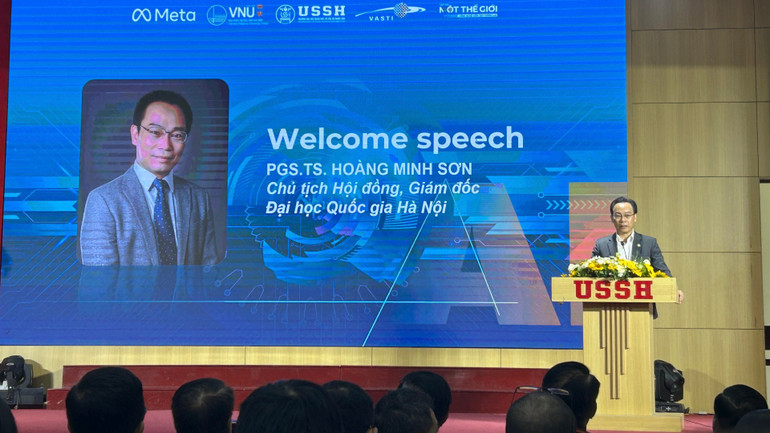
"Today's graduating students will certainly have very different competency requirements than before. Previously, graduating students needed to meet the requirement of computer skills, which was the minimum tool for working. Today's graduates, in addition to methodology, need foundational knowledge of artificial intelligence and digital skills," said Associate Professor, Dr. Hoang Minh Son, adding that artificial intelligence should be immediately integrated into the teaching and learning process. This is not only to meet the changing labor market or job requirements upon graduation, but also to allow students to use the latest tools and effectively utilize them in their learning process to improve the quality of their studies, thereby developing and enhancing their competencies.
Therefore, the development of digital skills and artificial intelligence skills for students needs to be implemented early, starting at the university level, and if possible, even earlier at the secondary school level.
According to Associate Professor Hoang Minh Son, Hanoi National University has set the development orientation of applying digital technology and artificial intelligence as one of the pillars of its development strategy until 2530, with a vision to 2045. He hopes that higher education institutions will build a model to develop digital and artificial intelligence capabilities for management staff, teachers, and students in all universities, high schools, and vocational education institutions.
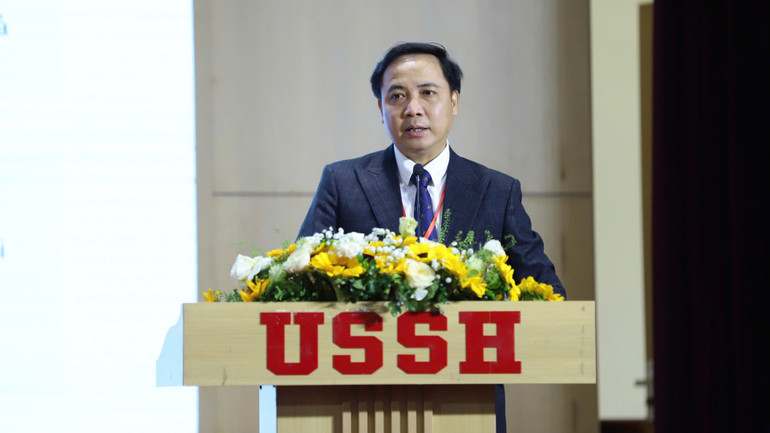
Associate Professor, Dr. Do Van Hung, Head of the Information-Library Science Department, University of Social Sciences and Humanities, stated that, based on consultations with experts, researchers, lecturers, and students, and referencing the widely used International Digital and AI Competency Framework, the University of Social Sciences and Humanities has collaborated with a partner unit to develop an Artificial Intelligence Competency Framework for university students.
The AI competency framework is built with the goal of providing a foundation for developing training programs, equipping university students with the ability to use, evaluate, create, and responsibly interact with AI technology in their studies and research.
With this document, training institutions, lecturers, and students can orient their learning, develop AI skills, and effectively adapt to the context of digital transformation, turning AI into a powerful assistant without becoming overly dependent on it.
Source: https://nhandan.vn/can-som-co-mot-chien-luoc-bai-ban-dua-tri-tue-nhan-tao-vao-truong-hoc-post918695.html








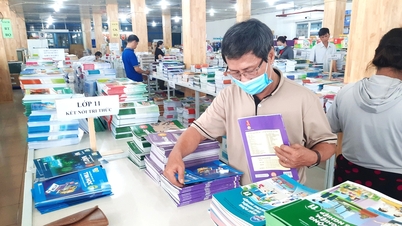

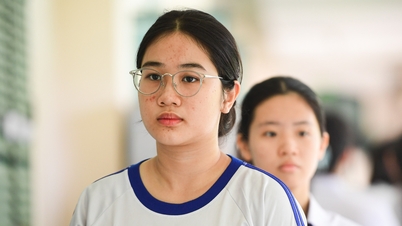

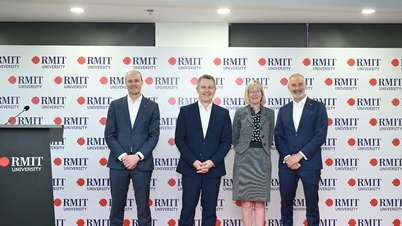
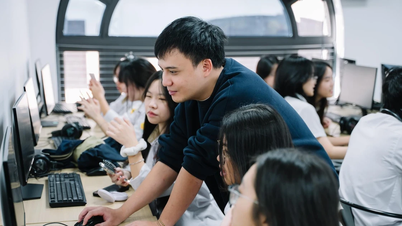



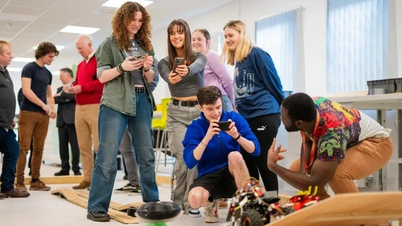






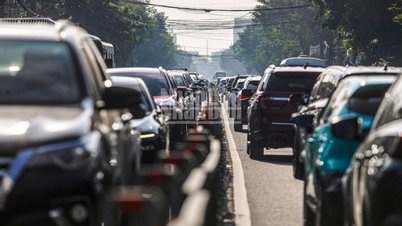

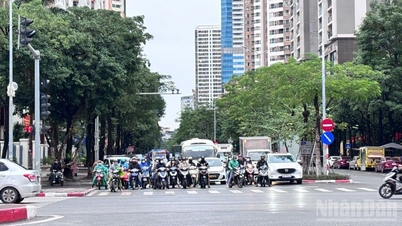










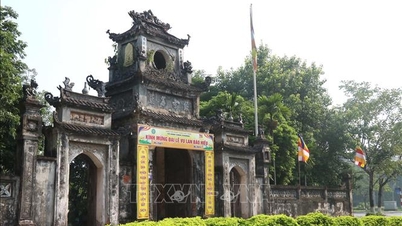


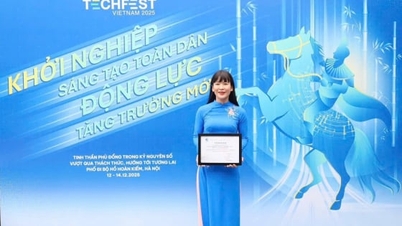


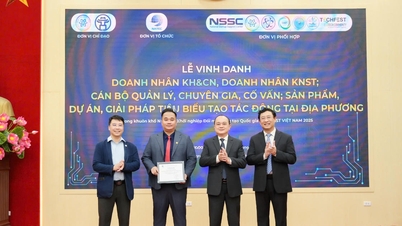
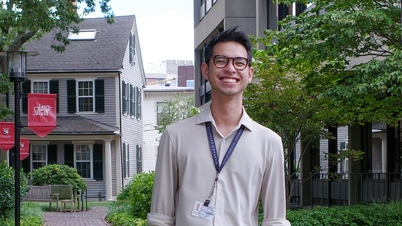



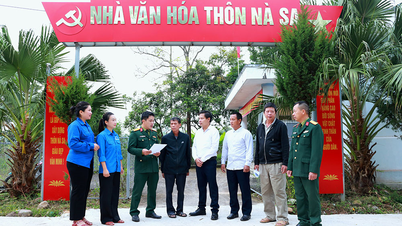





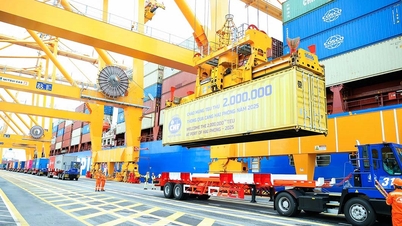

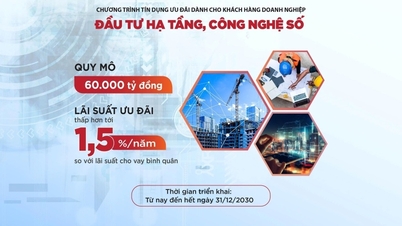









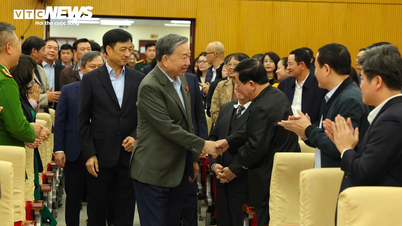








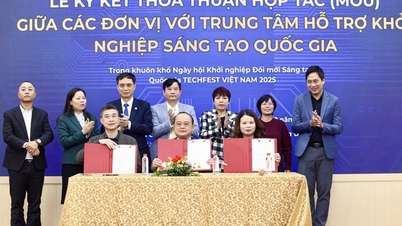























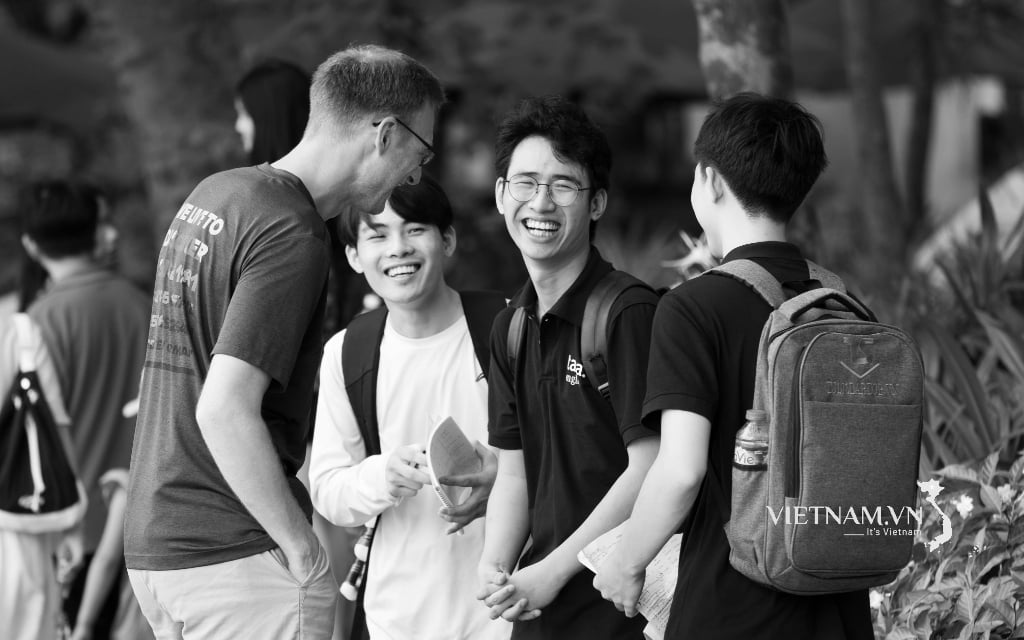



Comment (0)